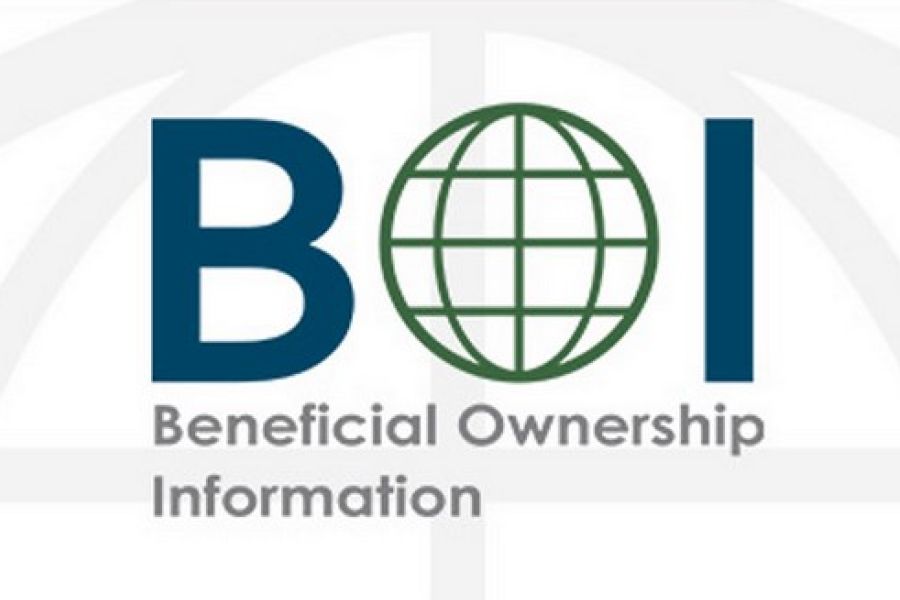When selling business assets, understanding the tax implications is crucial. One area to focus on is Section 1231 of the Internal Revenue Code, which governs the treatment of gains and losses from the sale or exchange of certain business property. Business gain and loss tax basics The federal income tax character of gains and losses from selling business assets can fall into three categories: Capital gains and losses. These result from selling capital assets which are generally defined as property other than 1) inventory and property primarily held for sale to customers, 2) business receivables, 3) real and depreciable business property including rental real estate, and 4) certain intangible assets such as copyrights, musical works and art works created by the taxpayer. Operating businesses typically don’t own capital assets, but they...

Global merger and acquisition (M&A) volume is expected to surpass $4 trillion in 2025, the highest in four years, according to Reuters. Reasons for the anticipated surge include recent interest rate cuts by the Federal Reserve and GOP promises of fewer regulations and lower taxes for U.S. businesses and their owners. Tariffs — if enacted — also could spur consolidation in certain industries. If your business is planning to jump on the M&A bandwagon, working with a business valuation professional can help during this exciting — but stressful — process. Getting your business sale-ready Business buyers are most interested in a company’s core competencies. Nonessential items — such as underperforming segments, nonoperating assets, shareholder loans and minority investors — complicate a deal. An experienced business valuation pro can...
Saving for retirement is a crucial financial goal and a 401(k) plan is one of the most effective tools for achieving it. If your employer offers a 401(k) or Roth 401(k), contributing as much as possible to the plan in 2025 is a smart way to build a considerable nest egg. If you’re not already contributing the maximum allowed, consider increasing your contribution in 2025. Because of tax-deferred compounding (tax-free in the case of Roth accounts), boosting contributions can have a significant impact on the amount of money you’ll have in retirement. With a 401(k), an employee elects to have a certain amount of pay deferred and contributed to the plan by an employer on his or her behalf. The amounts are indexed for inflation each year...
According to the Association of Certified Fraud Examiners, when one occupational fraud perpetrator pulls off a scam, the employer suffers a median loss of $75,000. When crooked individuals team up, that median loss rises to $135,000. And when three or more crooks work together to defraud an organization? $329,000. That’s the power of collusion. If such financial consequences weren’t bad enough, collusion can also destroy a company’s reputation. After all, from the perspective of investors, lenders, customers and the general public, the defrauded business may seem corrupt and chaotic — certainly not trustworthy. So you must do everything possible to discourage collusion and other forms of fraud in your business. Preventing control workarounds Internal controls, or policies and procedures that can help minimize criminal behavior, are essential to...
According to the U.S. Bureau of Labor Statistics, the unemployment rate continues to be historically low, ranging from 4.0% to 4.3% from May to November of 2024. With today’s hiring challenges, business owners should be aware that the Work Opportunity Tax Credit (WOTC) is available to employers that hire workers from targeted groups who face significant barriers to employment. The tax credit is generally worth as much as $2,400 for each eligible employee (higher for certain veterans and “long-term family assistance recipients”). It’s generally limited to eligible employees who begin working for the employer before January 1, 2026. To satisfy a requirement of the WOTC, a pre-screening notice must be completed by the job applicant and the employer on or before the day a job offer...
In a major development for U.S. businesses, the Financial Crimes Enforcement Network (FinCEN) has announced the reinstatement of the beneficial ownership information (BOI) reporting mandate under the Corporate Transparency Act (CTA). The decision comes on the heels of a February 18, 2025, ruling by the U.S. District Court for the Eastern District of Texas, which lifted a preliminary injunction in the case of Smith, et al. v. U.S. Department of the Treasury, et al. (Case No. 6:24-cv-00336). With this ruling, the filing requirement is back in effect, and a new deadline of March 21, 2025, has been set for most reporting companies. This announcement, detailed in FinCEN Notice FIN-2025-CTA1, marks a significant shift after months of legal uncertainty surrounding the CTA’s BOI requirements. The reinstated mandate...
When considering the advantages of U.S. Treasury savings bonds, you may appreciate their relative safety, simplicity and government backing. However, like all interest-bearing investments, savings bonds come with tax implications that are important to understand. Deferred interest Series EE Bonds dated May 2005 and after earn a fixed rate of interest. Bonds purchased between May 1997 and April 30, 2005, earn a variable market-based rate of return. Paper Series EE Bonds, issued between 1980 and 2012, were sold at half their face value. For example, you paid $25 for a $50 bond. The bond isn’t worth its face value until it matures. New electronic EE Bonds earn a fixed rate of interest that’s set before you buy the bond. They earn that rate for the first 20 years,...
When deciding on the best structure for your business, one option to consider is a C corporation. This entity offers several advantages and disadvantages that may significantly affect your business operations and financial health. Here’s a detailed look at the pros and cons of operating as a C corporation. Tax implications A C corporation allows the business to be treated and taxed separately from you as the principal owner. The corporate tax rate is currently 21%, which is lower than the highest non-corporate tax rate of 37%. One of the primary disadvantages of a C corporation is double taxation. The corporation’s profits are taxed at the corporate level and then any dividends distributed to shareholders are taxed again at the individual level. This can result in a higher overall tax...
Before you contact a business valuation professional, ask yourself the following five questions to help streamline the valuation process and avoid unnecessary confusion down the road: (1) Who’s hiring the valuator? The party that hires a valuation expert is typically responsible for putting up a retainer and paying the invoices. Attorneys may ask the client to hire the valuator directly to avoid collection issues. However, attorneys sometimes hire the valuator directly to help preserve attorney-client privilege. When businesses are valued for non-litigation purposes, the company (or its owners) typically assumes responsibility for hiring and paying the valuator. (2) What’s being valued? Identify exactly what’s being valued. Provide the valuator with basic information, such as: The company’s name, The type of entity (S corporation, partnership or trust), and The...
There are two tax breaks that help eligible parents offset the expenses of adopting a child. In 2025, adoptive parents may be able to claim a credit against their federal tax for up to $17,280 of “qualified adoption expenses” for each child. This is up from $16,810 in 2024. A tax credit is a dollar-for-dollar reduction of tax. Also, adoptive parents may be able to exclude from an employee’s gross income up to $17,280 in 2025 ($16,810 in 2024) of qualified expenses paid by an employer under an adoption assistance program. Both the credit and the exclusion are phased out if the parents’ income exceeds certain limits detailed below. Parents can claim both a credit and an exclusion for the expenses of adopting a child. But they...
- 1
- 2
- 3
- 4
- 5
- 6
- 7
- 8
- 9
- 10
- 11
- 12
- 13
- 14
- 15
- 16
- 17
- 18
- 19
- 20
- 21
- 22
- 23
- 24
- 25
- 26
- 27
- 28
- 29
- 30
- 31
- 32
- 33
- 34
- 35
- 36
- 37
- 38
- 39
- 40
- 41
- 42
- 43
- 44
- 45
- 46
- 47
- 48
- 49
- 50
- 51
- 52
- 53
- 54
- 55
- 56
- 57
- 58
- 59
- 60
- 61
- 62
- 63
- 64
- 65
- 66
- 67
- 68
- 69
- 70
- 71
- 72
- 73
- 74
- 75
- 76
- 77
- 78
- 79
- 80
- 81
- 82
- 83
- 84
- 85
- 86
- 87
- 88
- 89
- 90
- 91
- 92
- 93
- 94
- 95
- 96
- 97
- 98
- 99
- 100
- 101
- 102
- 103
- 104
- 105
- 106
- 107
- 108
- 109
- 110
- 111
- 112
- 113
- 114
- 115
- 116
- 117
- 118
- 119
- 120
- 121
- 122
- 123
- 124
- 125
- 126
- 127
- 128
- 129
- 130
- 131
- 132
- 133
- 134
- 135
- 136
- 137
- 138
- 139
- 140
- 141
- 142
- 143
- 144
- 145
- 146
- 147
- 148
- 149
- 150
- 151
- 152
- 153











